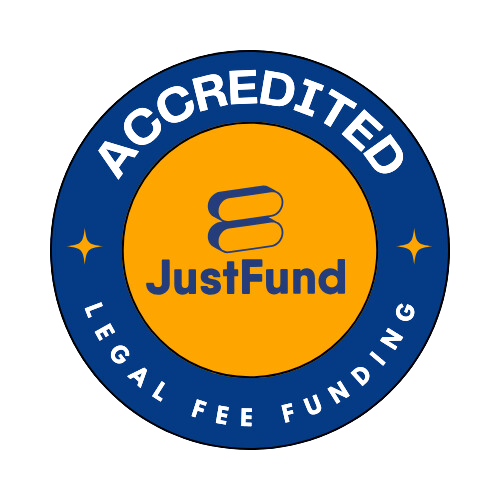Conveyancing Services in Taree
Property Transactions
Servicing Taree & Surrounds
Strata & Community Titles
Established in 1911
Assistance in Overseeing Transactions
Our solicitors at Paton Hooke Lawyers service Taree, Wingham, Old Bar, Forster-Tuncurry, Harrington, Nabiac and beyond. Property transactions can involve legal and financial processes that require careful management. Our team assists individuals, businesses and investors with buying, selling and transferring a variety of properties.
We handle many aspects of conveyancing, including contract preparation, property searches, title transfers and settlements. Whether purchasing a home, selling a business property or transferring ownership, we provide legal guidance to help ensure compliance with regulations and contract terms. Our team works with financial institutions, real estate agents and local authorities to finalise transactions.
Understanding legal obligations in property dealings can result in a smooth process. Paton Hooke Lawyers offers assistance with conveyancing services in Taree, helping ensure transactions are completed securely.
Call
(02) 6551 0355 to arrange an appointment to discuss property transfers or legal requirements for buying and selling real estate. We also provide mortgage advice and
notary public services.
Legal Considerations for Property Transactions
Different property transactions may require specific legal considerations. Paton Hooke Lawyers provides assistance with conveyancing services in Taree for a range of property matters, including:
- Residential Conveyancing: Preparing and reviewing contracts, overseeing settlements and helping ensure legal compliance when buying or selling homes.
- Rural Property Transactions: Managing crown leases, enclosure permits and water licences.
- Commercial and Industrial Conveyancing: Handling commercial property sales, leases, business purchases and related legal agreements.
- Strata and Community Title Conveyancing: Assisting with property transfers for units, townhouses, apartments and commercial properties.
- Property Title Transfers: Helping manage family transfers, subdivisions, boundary adjustments and self-managed super fund transactions.
Property transactions may involve unique legal requirements. Paton Hooke Lawyers provides clear guidance on conveyancing processes, ensuring contracts and settlements are handled efficiently in Taree.
Frequently Asked Questions
How can a lawyer assist with conveyancing?
Our lawyers provide comprehensive conveyancing services alongside broader legal advice. This means you can benefit from assistance across property law, contract law, and dispute resolution if unexpected issues arise.
By working with lawyers, you can gain the added assurance that your transaction is handled by a team who can address complex legal matters beyond standard conveyancing requirements.
What are the advantages of using a solicitor for conveyance?
When undertaking a property sale or purchase, the choice of legal representative is critical. While both solicitors and licensed conveyancers are authorised to handle conveyancing transactions in New South Wales, there are significant advantages to instructing a qualified solicitor:
1. Broader Legal Expertise
- Comprehensive Legal Knowledge: Solicitors are trained in all areas of law, not just conveyancing. This means they can identify and advise on complex legal issues that may arise during a transaction, such as family law matters, estate issues, or disputes involving trusts and company structures.
- Problem-Solving: If a transaction becomes contentious or involves litigation (e.g., breach of contract, caveats, or disputes over boundaries), a solicitor can provide immediate advice and representation, whereas a conveyancer would need to refer you to a solicitor.
2. Ability to Provide Full Legal Services
- Drafting and Reviewing Complex Documents: Solicitors can draft and review a wider range of legal documents, including those outside the standard contract for sale, such as powers of attorney, testamentary documents, or bespoke agreements.
- Court Representation: Only solicitors can represent clients in court proceedings related to property transactions, such as urgent injunctions or enforcement of contractual rights.
3. Professional Standards and Regulation
- Regulatory Oversight: Solicitors are regulated by the Law Society of NSW and are subject to strict professional and ethical standards, including ongoing professional development.
- Fiduciary Duties: Solicitors owe their clients a fiduciary duty, ensuring the highest standard of care and loyalty.
4. Risk Management and Insurance
- Risk Assessment: Solicitors are trained to identify and mitigate legal risks beyond the scope of a standard conveyance.
5. Holistic Client Service
- Integrated Advice: Solicitors can provide advice on related legal matters, such as asset protection, and estate planning, ensuring the transaction aligns with the client’s broader legal and financial objectives.
- Continuity of Service: If additional legal issues arise, the solicitor can continue to act without the need for referral, ensuring continuity and efficiency.
6. Handling Complex Transactions
- Complex Title and Ownership Structures: Solicitors are better equipped to handle transactions involving companies, trusts, deceased estates, or disputes between co-owners.
While licensed conveyancers are suitable for straightforward property transactions, a qualified solicitor offers a broader, more robust service, particularly where transactions are complex or where additional legal issues may arise. Engaging a solicitor provides peace of mind, knowing that all legal aspects of your property transaction are managed by a professional with comprehensive legal training and experience.
What is the difference between a conveyancer and a solicitor?
A conveyancer specialises in property transactions, handling contracts, settlements and legal transfers. A solicitor provides broader legal services, including dispute resolution and legal representation. While both can manage conveyancing, solicitors may be required for complex matters, such as helping resolve property disputes or handling transactions involving deceased estates.
How long does the conveyancing process take?
The conveyancing process typically takes four to six weeks from exchange, depending on contract terms, property searches and financial approvals. Delays may occur if legal issues arise, such as disputes, missing documents or outstanding property debts. A conveyancer helps manage the process efficiently, helping ensure all legal and financial obligations are met within the settlement period.










